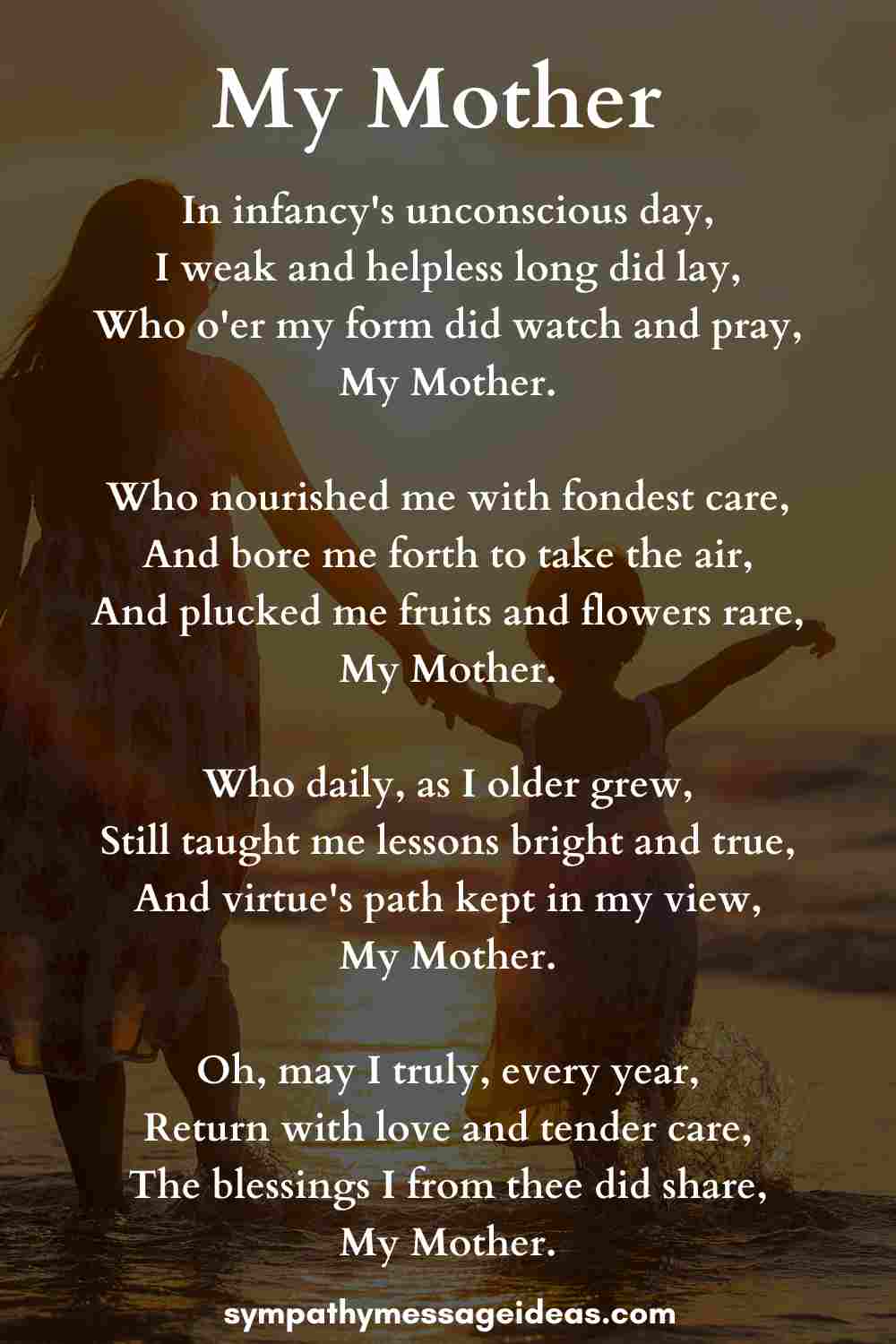Dreams have long fascinated humanity, serving as a portal into our subconscious. When it comes to dreaming about deceased loved ones, especially a mother, the interpretations can vary widely depending on cultural, spiritual, and psychological perspectives. This article seeks to delve into the meanings behind dreaming of a deceased mother, exploring various interpretations, including symbolic, spiritual, and psychological dimensions.
Dreaming of your deceased mother may evoke a spectrum of emotions, ranging from sorrow and nostalgia to healing and acceptance. Such dreams often act as a conduit for unresolved feelings or longings we hold for that dearly departed figure. What do these dreams signify? They can illuminate various pathways—some aligning with religious beliefs and others rooted in psychological theory.
Symbolic Meanings
In the realm of dream analysis, symbolism plays a pivotal role. A deceased mother often symbolizes guidance, nurturing, protection, and unconditional love. The presence of a mother in dreams can signify a yearning for these qualities, especially during challenging times. It may also indicate a need to reconnect with one’s inner self, often referred to as the ‘inner mother’—a nurturing aspect that exists within us all.
Additionally, the imagery associated with a deceased mother can vary, enriching the symbolic landscape. For instance, seeing her smile may signify a sense of peace or approval in your current life choices. Conversely, her sadness or distress in your dream could hint at unresolved issues or guilt. This duality invites individuals to explore their emotions and memories, potentially leading to catharsis.
Spiritual Interpretations
From a spiritual viewpoint, dreams of deceased loved ones can represent messages from beyond. In Christian contexts, dreaming of a deceased mother is often interpreted as divine communication or a sign of divine protection. Some interpret these dreams as opportunities for closure; a chance for the subconscious to process grief and find solace in spiritual beliefs about the afterlife. For many Christians, believing that departed souls exist in a state of peace and are watching over us can provide comfort. This belief can culminate in dreams that manifest feelings of warmth, safety, and eternal love.
In Islamic culture, dreams of deceased family members, including mothers, may indicate blessings from the deceased. It is often viewed as a sign acknowledging your faith and a reminder to engage in prayers for the departed. Islamic teachings suggest that such dreams could be gentle nudges from the ancestors, encouraging the dreamer to pursue moral integrity or spirituality. Furthermore, these dreams may inspire introspection, prompting you to reflect on your relationship with your mother, both in life and after her passing.
Other Cultural Perspectives
Beyond the Abrahamic faiths, many cultures interpret dreams about deceased loved ones through different lenses. In various indigenous cultures, such dreams are revered and often considered sacred. They might be regarded as visits from the spirit world, advocating for remembrance and respect for one’s heritage. Similarly, Eastern philosophies may view these dreams as balances of energies, enabling the living to receive wisdom from those who’ve crossed over. Each cultural interpretation enriches the understanding of these dreams, reminding us of the universal human experience of loss.
Psychological Aspects
Psychologically, the dream of a deceased mother can invoke a myriad of interpretations stemming from grief, trauma, or unresolved conflicts. Sigmund Freud, the father of psychoanalysis, posited that dreams are manifestations of our repressed desires and emotions. Therefore, dreaming of a deceased mother may denote suppressed feelings of loss or longing for nurturing characteristics that were prevalent during one’s childhood.
It is also worth noting the concept of ‘prolonged grief disorder,’ which can lead to persistent yearning for the deceased. Such persistent dreams can serve as a reflection of grief’s complexity, illustrating how the mind processes mourning and its impact on emotional well-being. In therapy, these dreams can be employed as a conduit for conversation about feelings of abandonment, guilt, or unresolved resentment—elements deeply intertwined with motherly relationships.
Furthermore, Carl Jung’s theory of the collective unconscious offers a different angle. Jung interpreted deceased figures in dreams as archetypes that embody specific qualities or life stages. A deceased mother in this context may symbolize nurturing, wisdom, or even the passage from one phase of life to another. Analyzing these dreams with an emphasis on personal development could unlock profound insights into one’s emotional landscape.
Conclusion
Dreaming of a deceased mother is a multifaceted experience that encapsulates emotional, spiritual, and psychological dimensions. These dreams bear witness to the intricacies of human emotion—reminders of lost connection, harbingers of healing, or symbols invoking guidance and acceptance. As we navigate these intricate interpretations, we gain deeper insight into our personal journey, rich in symbolism, spirituality, and psychological exploration. Recognizing the profound nature of dreams can lead to a more nurturing relationship with our memories, potentially transforming the sorrow of loss into a celebration of love that endures beyond the grave.










